The Dandy Warhols’ Courtney Taylor-Taylor on his Portland ragers, no-go drugs, and David Bowie’s iconic dine-and-dash
Their 2000 hit ‘Bohemian Like You’ anointed them the boho kings of louche Portland alt-rock. Two decades later, speaking to Mark Beaumont, vocalist Courtney Taylor-Taylor opens up about his fears of another civil war in the US, their new album – and the ‘manipulation and intimidation’ rife in the music industry
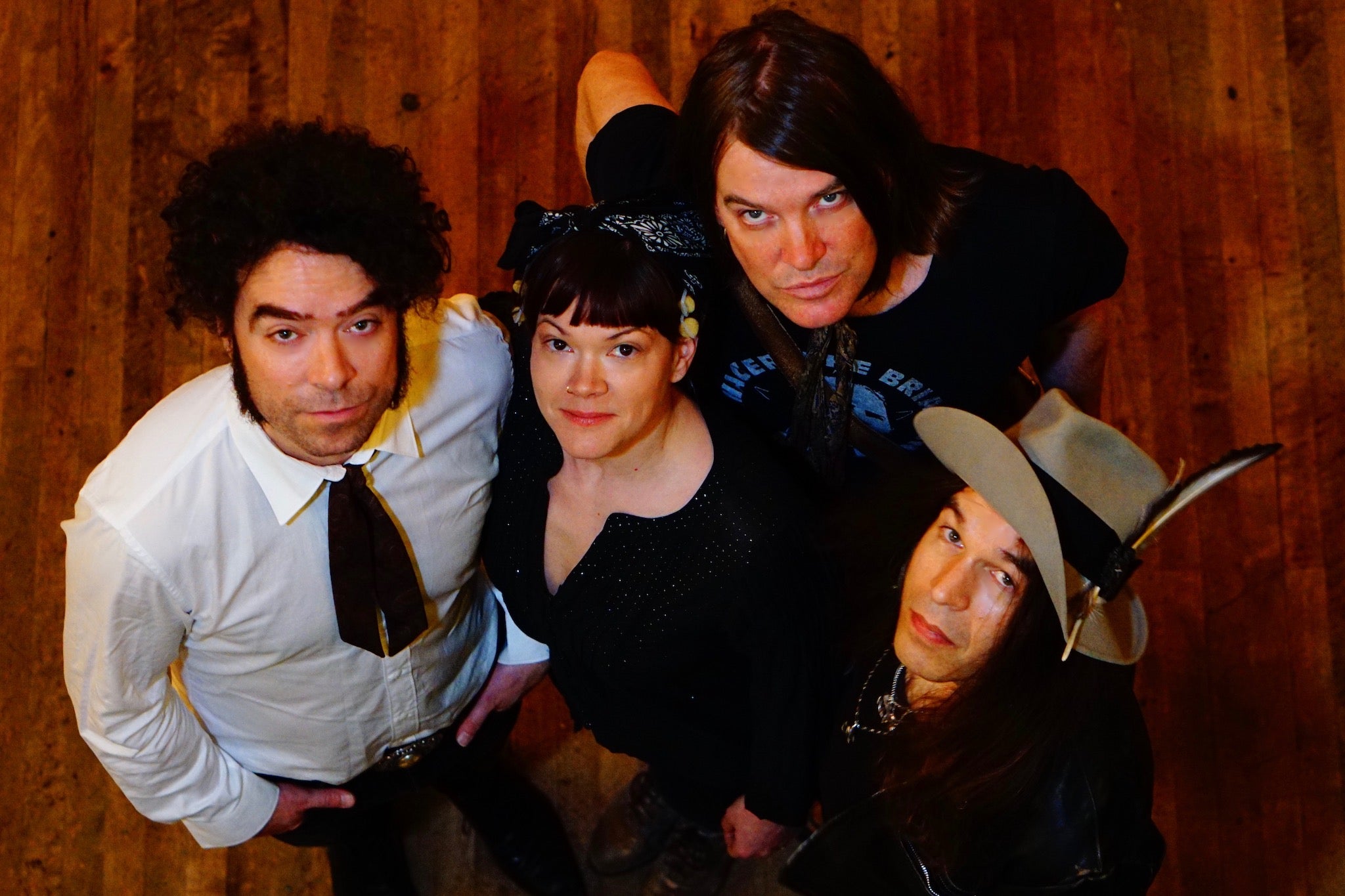
Courtney Taylor-Taylor has been quietly going about his doomsday prep. Over time, The Dandy Warhols singer has been stocking up on water purification equipment, dry food packs, camping gear, off-road motorcycles – and guns. “I’m slowly accruing a bunch of crap and organising a plan,” he says, Zooming in from his home in Portland rather than any off-grid bunker hideaway – for now. “Our friends are halfway serious about how the hell are we going to survive this? Where do you go?”
Courtney Taylor-Taylor, feeling so survivalist like you? Two decades on from his peak period as the boho king of louche Portland alt-rock, matters have grown significantly less groovy. Back then, when “Bohemian Like You”, “Every Day Should Be a Holiday” and “Get Off” ruled the indie dancefloors, his prime lyrical concerns were free love, Caligula-level partying, vibe-enhancing drugs (never heroin, so passe) and living the Sixties hippie dream on a bartender’s budget. Now the first two singles from the Warhols’ 12th album Rockmaker come wracked with post-pandemic anxiety (“The Summer of Hate”) and railing against the “f***ing idiots” who vote in lying, corrupt despots (“Danzig With Myself”).
“I think fundamentally, Trump is going to create a civil war,” he says, rummaging a hand through his long, plaited hair as if trying to rustle the idea of a second Trump term out of his head. He despairs at length about how this “fringe cult leader” has taken advantage of “the disgruntled, the undereducated, the under-serviced. The people that are angry… and they’re probably people who blame a lot of other people for their problems.” He sighs at the emboldened racism of it all. “It’s just a crazy, gross, swirling cesspool,” he says. “It’s hard to live in, particularly if you have a three-digit IQ.”
Though his demeanour is just as chilled and blasé, Taylor-Taylor doesn’t sound like the easy-going hedonist of old: the young psych-pop libertine who played early gigs half-naked; who recorded “Bohemian Like You” in a warehouse full of drugged-up hippie freaks playing strip poker; and who sang about his relentless pleasure-seeking on 2000’s Thirteen Tales from Urban Bohemia – The Dandy Warhols’ hit-laden breakthrough album, thanks in no small part to “Bohemian…” appearing in a Vodafone ad.
He’s a matured character, more bon than bong viveur these days. “When you get older and tired of hanging out at punk clubs and being a filthy dog, you find your indulgences become more refined,” he grins. When we speak, he’s weary from the most recent of a billion late nights, but one spent installing a sump in his flooded basement. He now lists his loves as art, food, and fine wine, “the poet’s high”. He recently added a wine bar to the Odditorium, the quarter-block rehearsal, studio, video-editing, and hang-out complex that he bought in 2001 with some of his $1.5m Vodafone money.
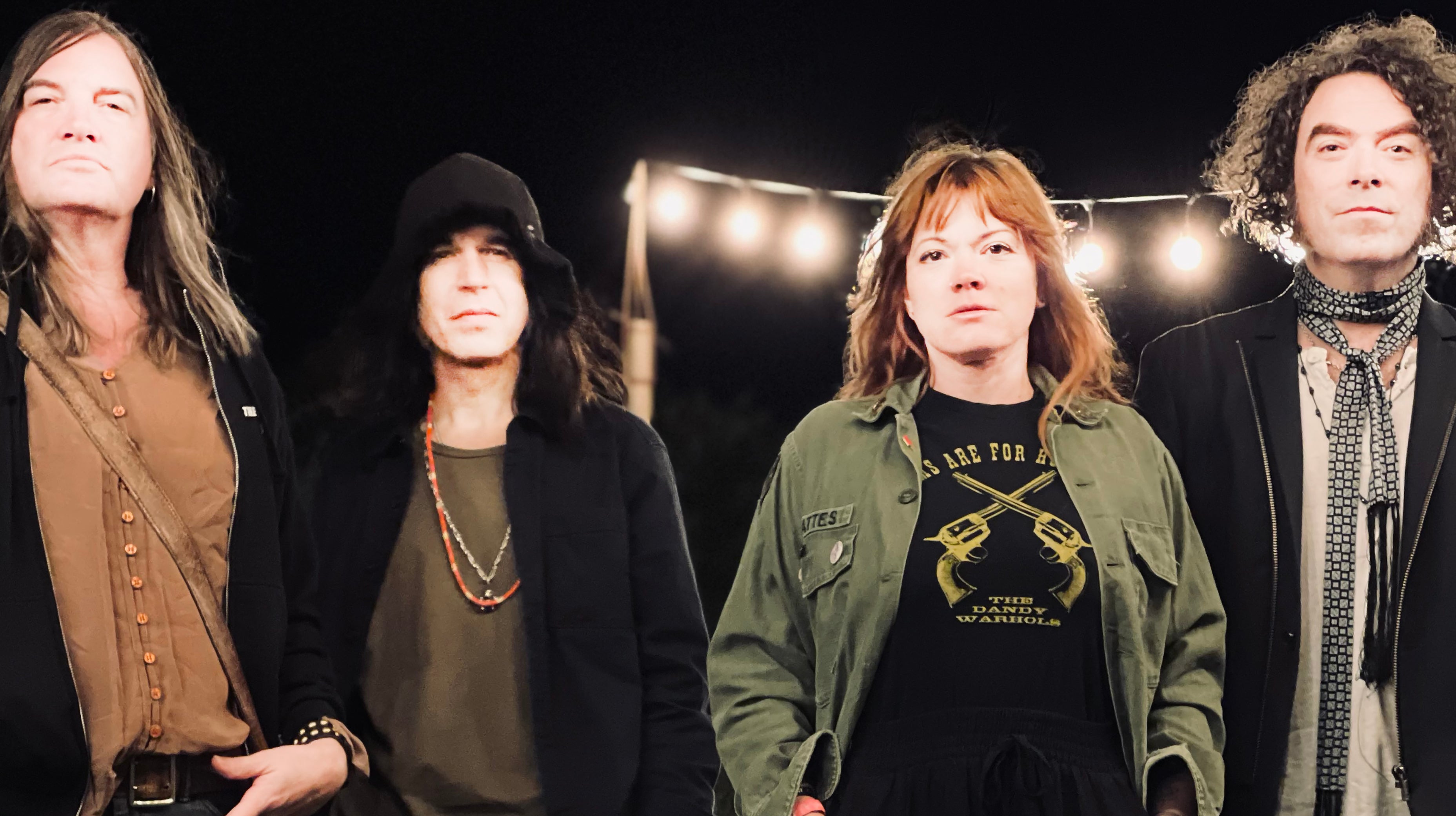
It’s here that The Dandy Warhols threw their legendary Portland “ragers”. One night in 2002, The Strokes, The Vines and Jet were all in town on the same night and the Warhols hosted a fully catered banquet. “The Raveonettes showed up and it was just one thing after another,” he laughs. “The Strokes had their first show of the tour the next night and they were a wreck.” Warhols champion and friend David Bowie was also among the Odditorium’s dinner guests, although Taylor-Taylor more fondly remembers a meal with The Dame in Vienna, when Bowie rushed away at the end of dinner leaving the Warhols holding the bill.
“My drummer had to put it on his card that had no limit on it because he was using it for his college loan,” he says. “David Bowie’s dinner got dumped in with payments for his college.”
When Taylor-Taylor’s not recording there with keyboardist Zia McCabe, guitarist Peter Holmström and drummer Brent DeBoer, the Odditorium is still something of a Portland alt-scene fulcrum. The band still host dinners for local indie rock dignitaries from Pavement, The Shins, and Modest Mouse, and test out their new music on the local party animals. “It’s helpful to see what you think of your new record in front of 25 people drunk and on party drugs or whatever,” he says.
This sense of carefree abandon has epitomised The Dandy Warhols’ career. Following the mainstream successes of 1997’s …The Dandy Warhols Come Down, Thirteen Tales… and 2003’s krautrock infused Welcome to the Monkey House, they released 2005’s experimental, drone-laden Odditorium or Warlords of Mars – what they’d later call a “f*** you record” to their major label Capitol in the hope of getting dropped.
Enjoy unlimited access to 100 million ad-free songs and podcasts with Amazon Music
Sign up now for a 30-day free trial. Terms apply.
ADVERTISEMENT. If you sign up to this service we will earn commission. This revenue helps to fund journalism across The Independent.
Enjoy unlimited access to 100 million ad-free songs and podcasts with Amazon Music
Sign up now for a 30-day free trial. Terms apply.
ADVERTISEMENT. If you sign up to this service we will earn commission. This revenue helps to fund journalism across The Independent.
“That wasn’t a particularly great era,” Taylor-Taylor says of the band’s commercial peak. “Success in the music industry is not a satisfying success. You’re being manipulated, constantly threatened by people in the industry, you have to do this humiliating thing or you won’t have a career and all this ugly, ugly s***.” He remembers The Cure’s Robert Smith telling him that success would be the most depressing thing ever to happen to him. “[He said] ‘you’re going to hate it’. Of course he was right.”
Since parting ways with Capitol after Warlord…, they’ve continued to follow the art wherever it takes them, consistently testing new musical avenues. 2012’s This Machine was a stripped back affair; 2020’s Tafelmuzik Means More When You’re Alone was a three-and-a-half-hour collection of extended avant-garde studio outtakes. “The studio is a pure research laboratory for us,” Taylor-Taylor says.
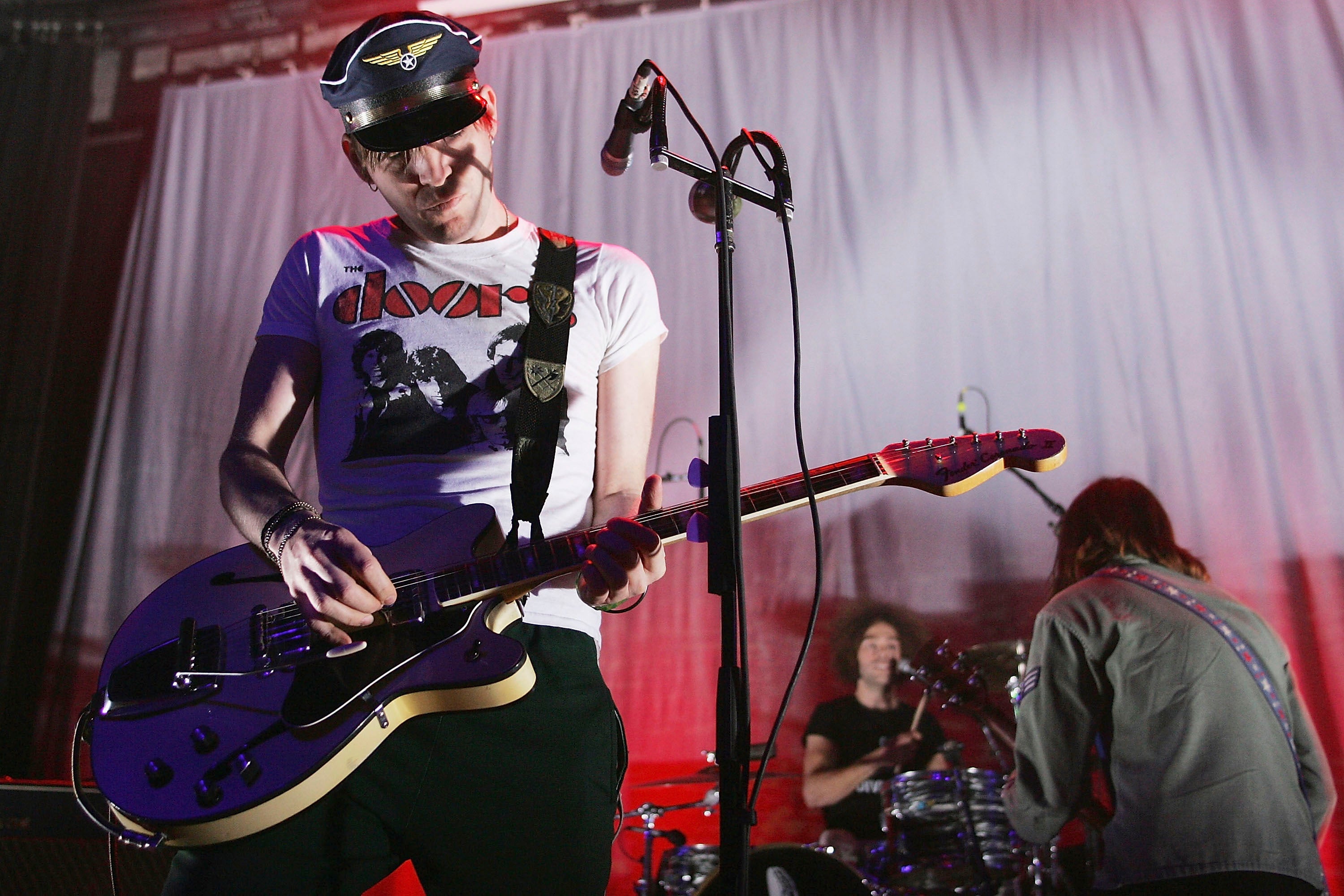
He considers the band’s hits to be happy if ground-breaking cultural accidents. “They were all studio experiments,” he says. “‘Get Off’, right…that’s a spaghetti western tune. Nobody did that in the Nineties. But we wouldn’t know how to concoct any kind of a hit song. Those are just accidental, our thing crossing paths with somehow enough of a global audience that is ready for that to be the next thing.” The Dandy Warhols’ influence, he feels, was also attitudinal. “It was a transitional time culturally,” he says of the early 2000s. “And it was wonderful because we were in the wheelhouse of cultural change, not just in Portland but globally. Things were changing. It was becoming a lot groovier in the world.”
It feels like civilisation is unravelling. It’s fraying, it’s tortured and when you’re young you don’t understand how fragile it is.
His tone darkens. “Obviously, now, it’s become a hateful, weird place. It’s difficult to be relaxed for more than a few minutes at a time and I think everybody’s feeling the tension,” he says. “All the badness and the anger of the world is coming into our lives through our personal devices.”
So posits Rockmaker. Resembling, in places, Tame Impala moonlighting in the concrete mixing trade, the band’s 12th album is a flam-free record full of melodic, blown-speaker psych grunge and what Taylor-Taylor calls “psychedelic LSD rock, guitar trippy coolness”. It features guest appearances by Debbie Harry, Slash, and Pixies’ Black Francis, and emerged from Taylor-Taylor fooling around in the Odditorium on his own for a year as he tried to convince his bandmates to make a record inspired by the metal bands the Warhols grew up on.
The opening track, tellingly titled “Doomsday Bells”, finds Taylor-Taylor struggling to relate to the planet around him and pining for “a world I left behind”. He’s talking about the “accepting head-space” of post-Vietnam America in the Seventies and Eighties. “America was devastated and very loose and groovy,” he explains. “It was a nation that had its spine broken and was tired of fighting. I think people felt very helpful [toward each other] after that experience.”
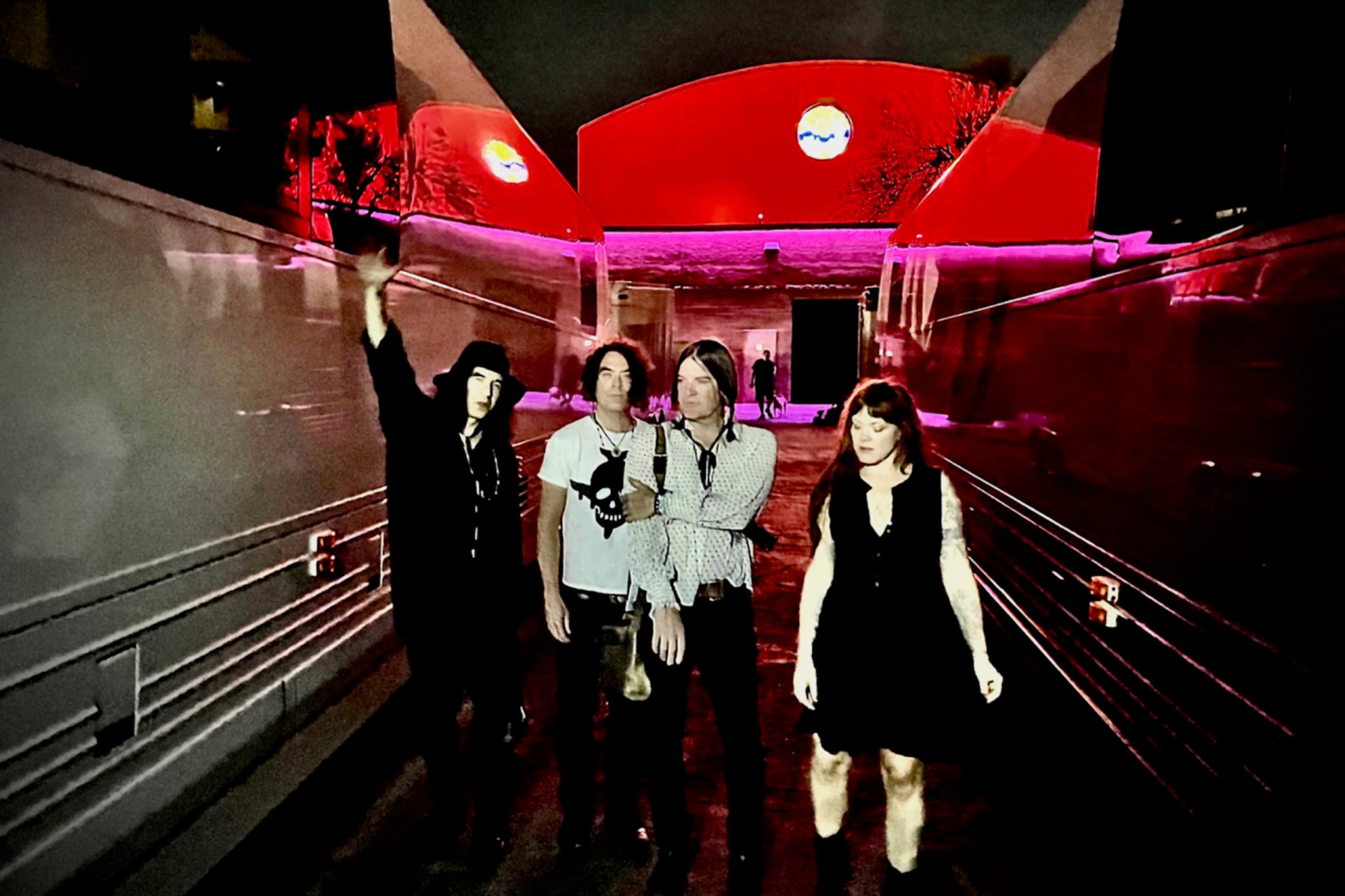
Now, he looks around Portland and sees pavement tents for miles while business owners block shelter housing projects and council members request $500,000 of public money to “study” the city’s homelessness problem. “Study it,” he says, despairingly. “Half a million dollars to study it. Of course, nothing ever happened, but somebody’s got a half a million dollars.”
He reserves no less sarcasm for the thousands of protesters whom he feels wrecked his beloved city over five months of sometimes violent George Floyd protests in the summer of 2020. “There’s no end game of revolution and change,” he argues. “And of course, they’re going about it all wrong. You destroy Portland, Oregon. ‘But we did it for Black Lives Matter’ – that was the cry. ‘We destroyed restaurants, we threw bricks and s*** through family-run restaurants, shops, and things. But we did it for Black lives.’ OK, and now all racism in America has been completely obliterated. There is no more racism. We all gladly, gladly gave up our city to achieve this great goal of the end of all dips*** racists. They’re all enlightened now, nobody’s a racist anymore. And guess what? Headlines a month later, some teenage African American kid gets shot in the back by some creepy, angry white cop. Gross. They hadn’t stopped that by destroying the most enlightened city in America.”
Online, meanwhile, Taylor-Taylor feels that social media has made heroes and freedom-fighters of society’s schmucks. “There’s millions and millions of people spewing hate just to get attention,” he says, counting finger-pointers on the left as much as reactionaries on the right. “I’m guessing that a lot of them are just really unlikable people.” His jaw sets, resigned. “Covid brought out a lot of garbage. But the beauty and the simplicity and the straightforwardness of the previous world we lived in is gone, possibly forever,” he says. “It feels like civilisation is unravelling. It’s fraying, it’s tortured and when you’re young you don’t understand how fragile it is.”
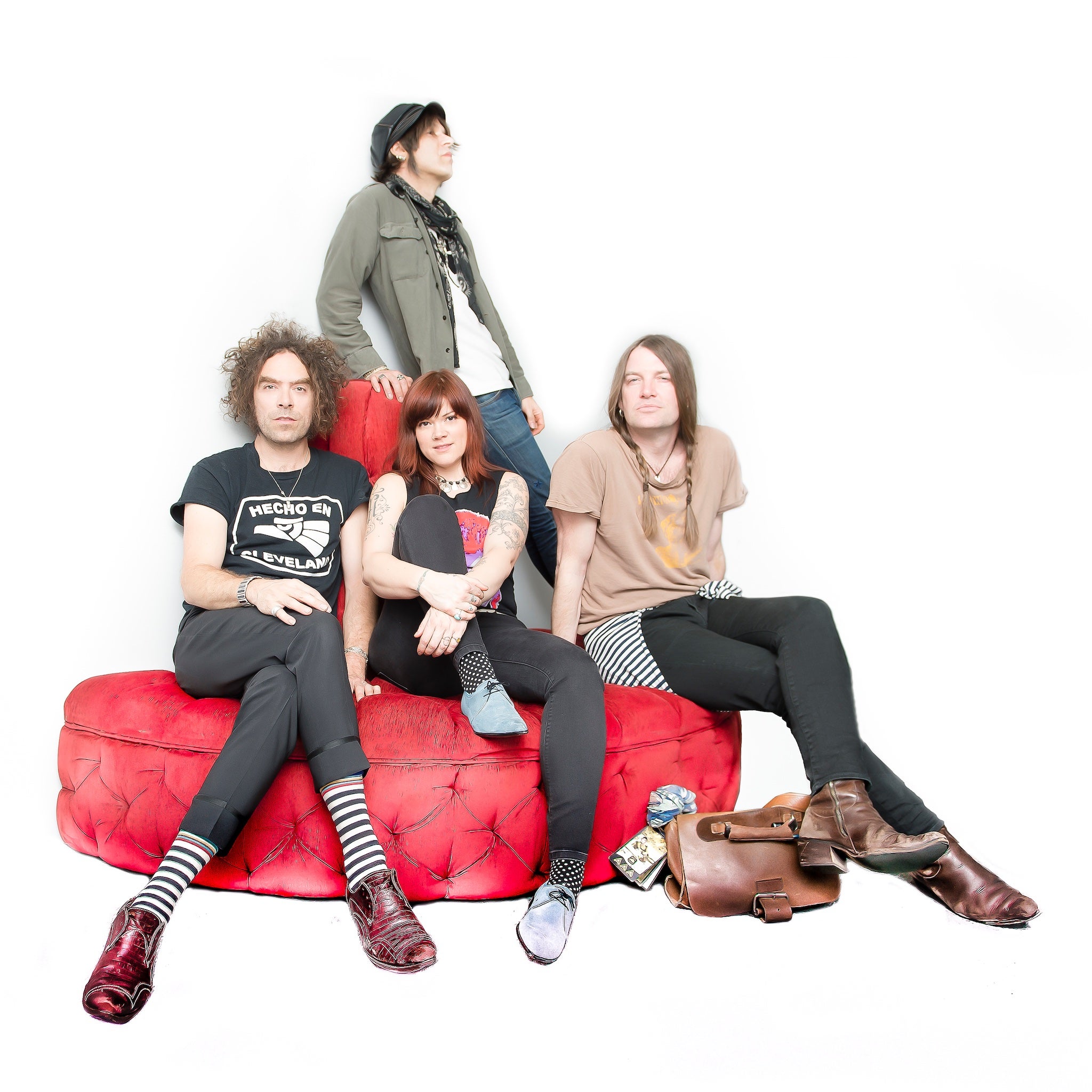
Amid its confessions of personal anxiety, the record contains flashing images of the old Taylor-Taylor. “Alcohol And Cocainemarijuananicotine” celebrates the artistic assistance of narcotics through the ages, which he claims to have navigated without any major issue. “People that aren’t experienced with weed often say it makes you stupid,” he says. “Well, it does, but it’s about using it to unlearn bad learned behaviours and iron out some neural ruts, and knee-jerk reactions.”
Ketamine? “I think I tried it. It’s a dangerous one because you can go into a K-hole and your heart can stop. That didn’t really seem to push my fun button.” Cocaine? “It’s such a rare thing to get it. I tried it years and years ago in South America and I just remember thinking, ‘God, this is like a really clean espresso buzz. And you can eat on it, you go to a dance club and music it feels good to move.’” He has since sworn off doing the drug outside of the region. “If you’re in London or New York, you’re probably doing speed.”
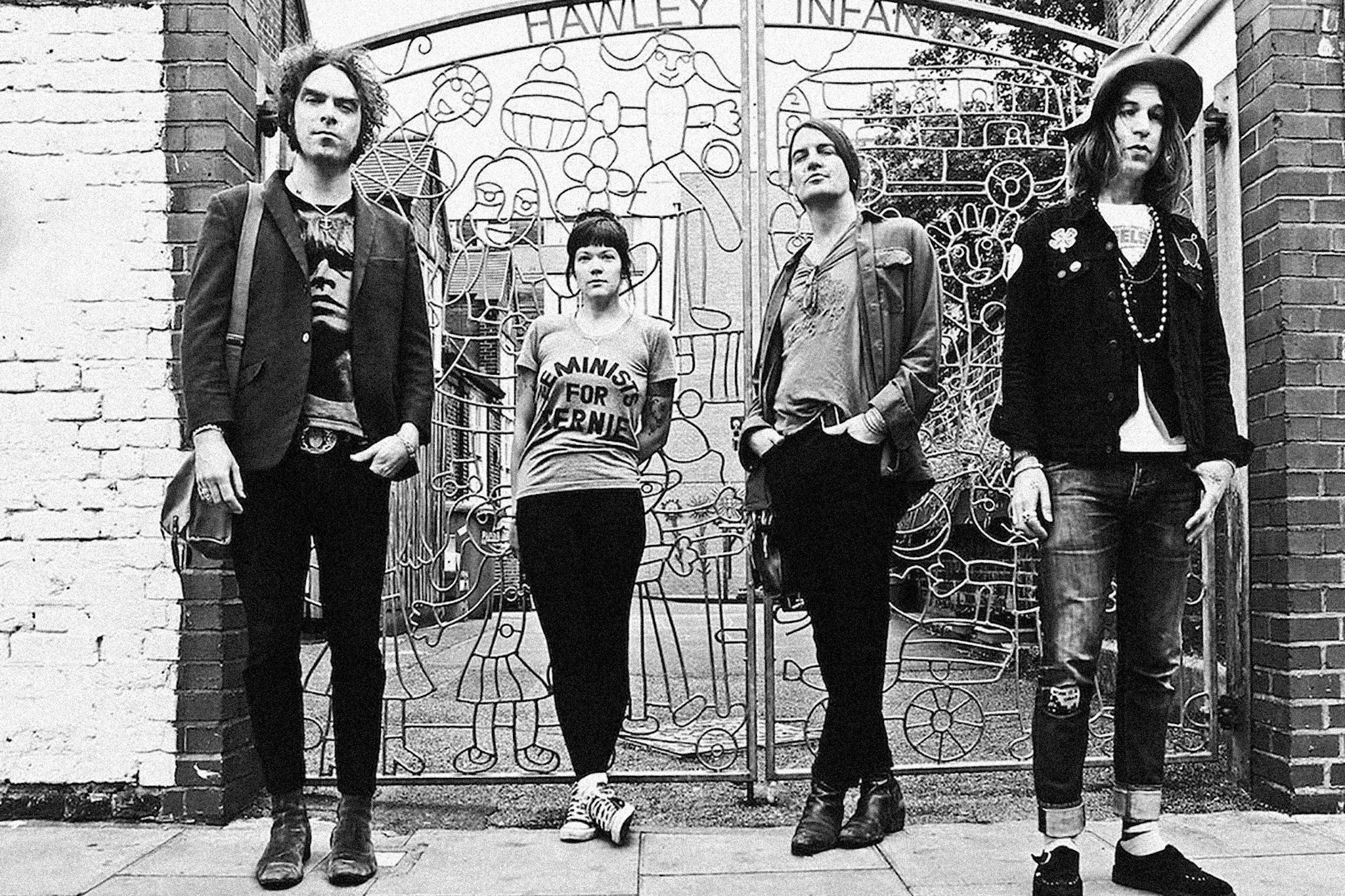
The old trappings of rock stardom seem as passe to Taylor-Taylor in 2024 as heroin did in 1997. For him, music now is all about creative fulfilment rather than success or cultural status. “Musicians aren’t important,” he says. “You’ve got superstars and then you’ve got a huge gap, and then you’ve got everybody else.” He sees the potential of Rockmaker, though, to bring about another of those star-aligned meetings of The Dandy Warhols and the zeitgeist.
“Four years ago, I wanted to make a metal record that I could wholeheartedly get myself into and smoke weed and put the headphones on and just feel awesome for 40 minutes,” he grins. “And then I started noticing that people are breaking through with really cool heavy records here and there. So the timing might be right at this point where we might enjoy a little swell in our popularity.” A Dandy Warhols revival: well worth staying on-grid for.
‘Rockmaker’ will be released on 15 March via Sunset Blvd Records
Join our commenting forum
Join thought-provoking conversations, follow other Independent readers and see their replies
Comments
Bookmark popover
Removed from bookmarks